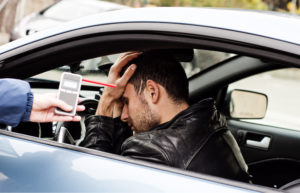 Driving under influence is one of the single biggest contributors to auto accidents and subsequent personal injuries, which may also lead to death. In various reports, the Center for Disease Prevention and Control (CDC) has highlighted one death every 48 minutes – or 28 percent of all traffic deaths, were due to driving under influence, with total crashes costing the U.S. economy more than $44 billion in 2016. Also is 2016, a million drivers were arrested and fined for driving under inference of alcohol and various other drugs. Apart from alcohol and drugs, the use of marijuana while driving continues to rise, leading to a 25 percent higher risk of road accidents.
Driving under influence is one of the single biggest contributors to auto accidents and subsequent personal injuries, which may also lead to death. In various reports, the Center for Disease Prevention and Control (CDC) has highlighted one death every 48 minutes – or 28 percent of all traffic deaths, were due to driving under influence, with total crashes costing the U.S. economy more than $44 billion in 2016. Also is 2016, a million drivers were arrested and fined for driving under inference of alcohol and various other drugs. Apart from alcohol and drugs, the use of marijuana while driving continues to rise, leading to a 25 percent higher risk of road accidents.
Considering the fact crashes happen often and because there are strict laws – which may result in a jail sentence, suspension of license or fines – consult a competent personal injury attorney to help your case. Likewise, if you’ve been injured in an auto crash due to driving under the influence and need to recover medical costs, or need legal advice for a potential lawsuit, call a personal injury attorney.
Consuming alcohol reduces muscle coordination, leads to impaired thinking and has negative effects on the nervous system. It also reduces the ability to focus on a task, making it a risk to roadside safety. Although some use of alcohol may be permitted, it is strictly advised not to drink before a long journey, or under distressed weather. According to the National Highway Traffic Safety Administration (NHTSA), a Blood Alcohol Concentration (BAC) of 0.08 can increase the risk of a crash and subsequent auto accidents. It is illegal in all states, including Illinois, leading to heavy fines of up to $25,000, three (3) to seven (7) years of jail term, suspension of license for 10 years and considered a felony if found guilty on multiple occasions.
Following proactive steps can reduce the risk of crashes and subsequent legal action when driving under influence, such as:

If you wish to find out more driving under influence, auto accidents, and unusual injuries in Illinois schedule a free consultation contact the offices of Robert Edens at (847) 395-2200 to speak with an experienced personal injury lawyer.